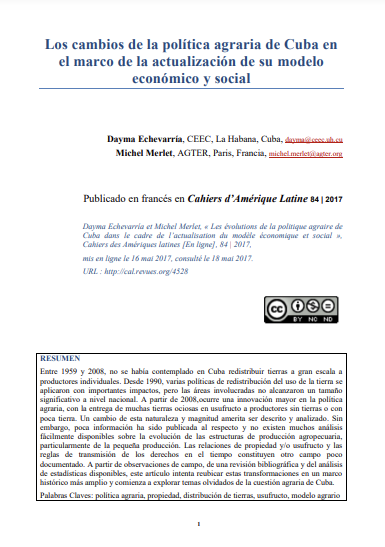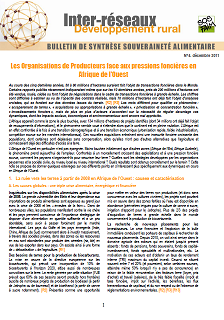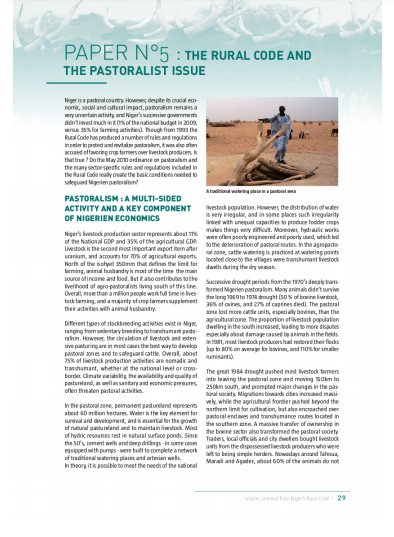Location
AGTER is an international association, created in 2005 under French law. AGTER works on the governance of land, water and natural resources.
- It was built on the basis of the experience of a worldwide network which had been working informally for many years (developing workshops within the World Social Forum in Porto Alegre - Brazil and organizing the World Forum on Agrarian Reform in 2004 in Valencia - Spain).
- AGTER was asked by FAO to prepare the second issue paper of the International Conference on Agrarian Reform and Rural Development (ICARRD) en 2006.
- AGTER is a member of the International Land Coalition from 2008. It carried out in 2009 the scoping study of the global research on Commercial Pressures on Land.
- AGTER prepared with the French Land Tenure and Development Technical Committee in 2010 a position paper on Large Scale Land appropriations which was used as the basis for the definition of the France's official position on this issue.
Based on its networks of persons and organizations, AGTER develops various spaces for discussion and reflection among distinct peoples and cultures, aiming at reinvigorating our collective thinking and learning from different (best and worst) experiences worldwide. The objective is to help partners and members to make proposals for renewed policies in order to address the considerable planetary challenges of the XXI century as far as the management of living beings, waters, and lands are concerned.
Therefore, AGTER develops, with the support of various Foundations (Fondation Charles Léopold Mayer pour le Progrès de l'Homme, Ford Foundation) :
- innovative pedagogic tools (including video documents), and mobile workshops, or learning journeys.
- a knowledge base, which conception and content are the result of the international thinking of AGTER's network (members and partners). This specific website is still under construction.
AGTER takes part in teaching and research conferences, Civil Society meetings, and organizes periodically thematic conferences on issues related with the governance of natural resources.
Resources
Displaying 6 - 10 of 12Los cambios de la política agraria de Cuba en el marco de la actualización de su modelo económico y social
Entre 1959 y 2008, no se había contemplado en Cuba redistribuir tierras a gran escala a productores individuales. Desde 1990, varias políticas de redistribución del uso de la tierra se aplicaron con importantes impactos, pero las áreas involucradas no alcanzaron un tamaño significativo a nivel nacional. A partir de 2008,ocurre una innovación mayor en la política agraria, con la entrega de muchas tierras ociosas en usufructo a productores sin tierras o con poca tierra. Un cambio de esta naturaleza y magnitud amerita ser descrito y analizado.
La politique des structures en France
Ce document examine les politiques des structures qui ont été mises en place en France dans la seconde partie du XXe siècle.
Struggles over property rights in the context of large-scale transnational land acquisitions. Using legal pluralism to re-politicize the debate.
Abstract
Les organisations de producteurs face aux pressions foncières en Afrique de l’Ouest
Cette note de huit pages dresse un état des lieux de la ruée sur les terres observée depuis 2008 et présente les stratégies développées par les organisations de producteurs, entre dénonciations, luttes locales et plaidoyer pour des politiques foncières plus équitables
PAPER N°5: The Rural Code and the Pastoralist Issue
Niger is a pastoral country. However, despite its crucial economic, social and cultural impact, pastoralism remains a very uncertain activity, and Niger’s successive governments didn’t invest much in it (1% of the national budget in 2009, versus 35% for farming activities). Though from 1993 the Rural Code has produced a number of rules and regulations in order to protect and revitalize pastoralism, it was also often accused of favoring crop farmers over livestock producers. Is that true ?








